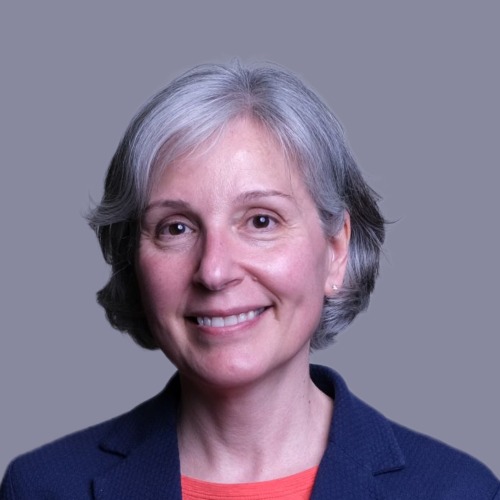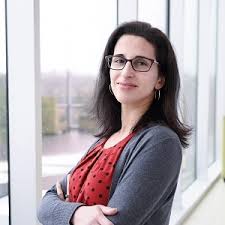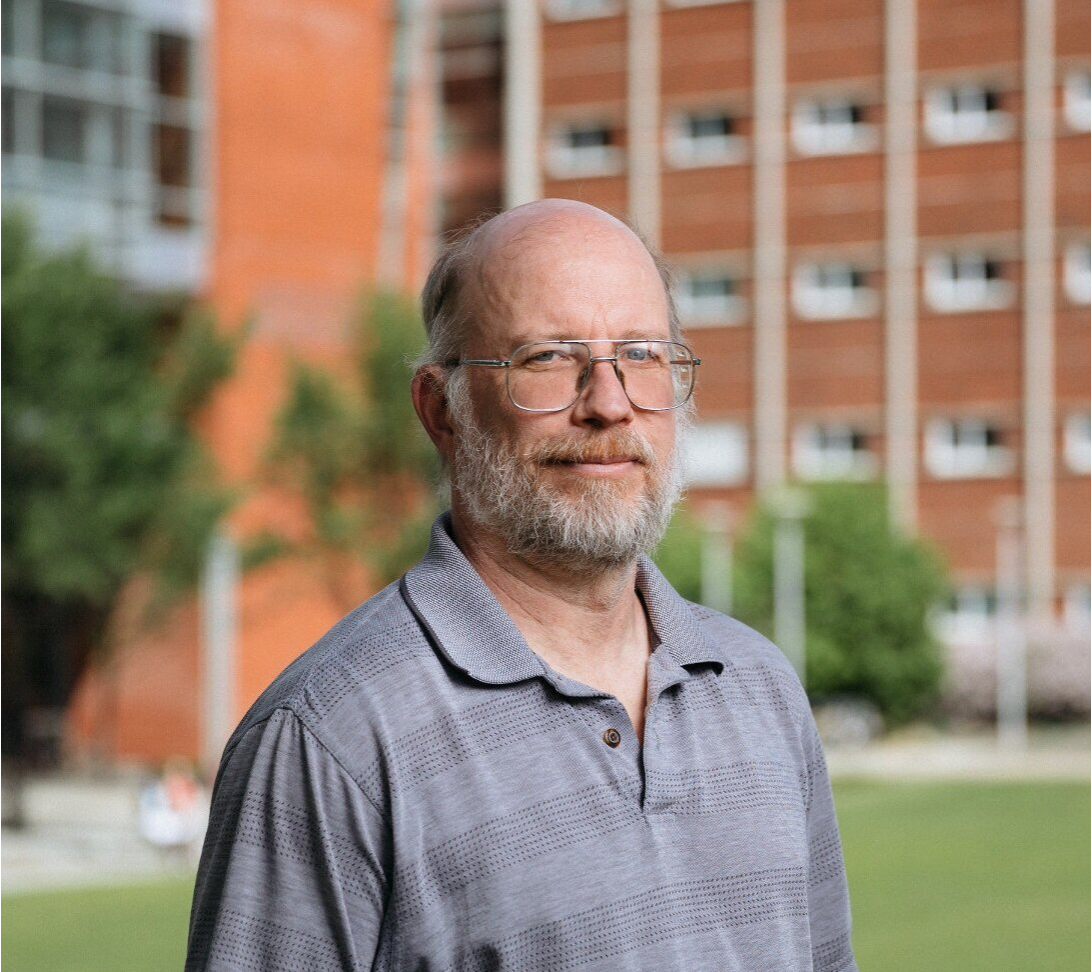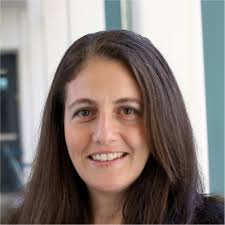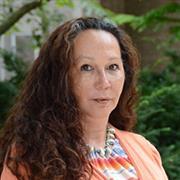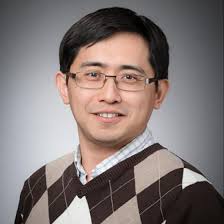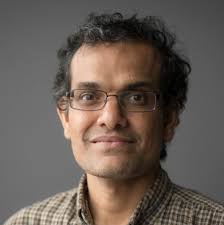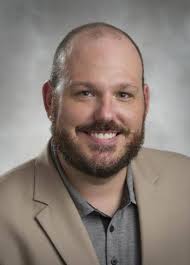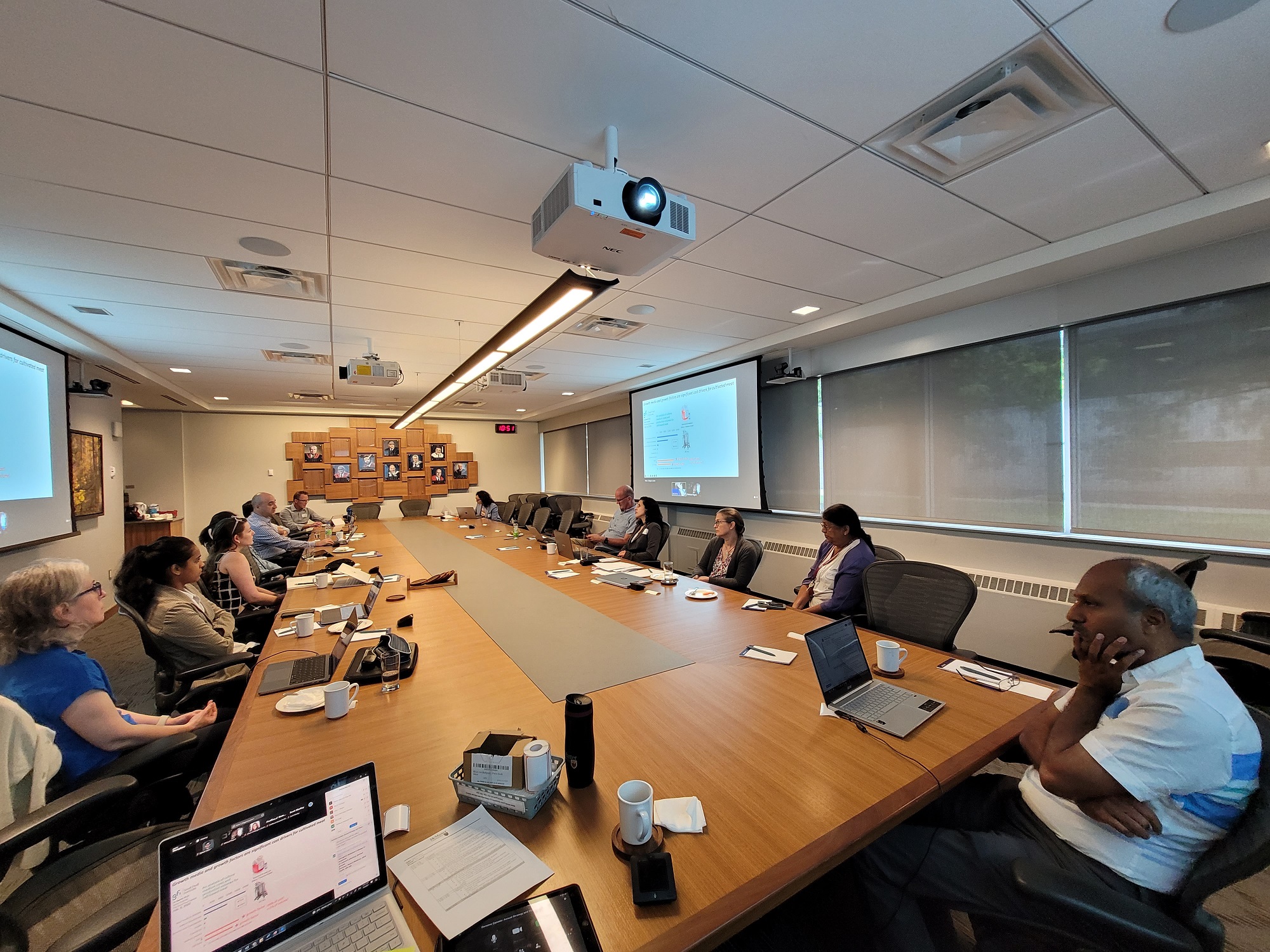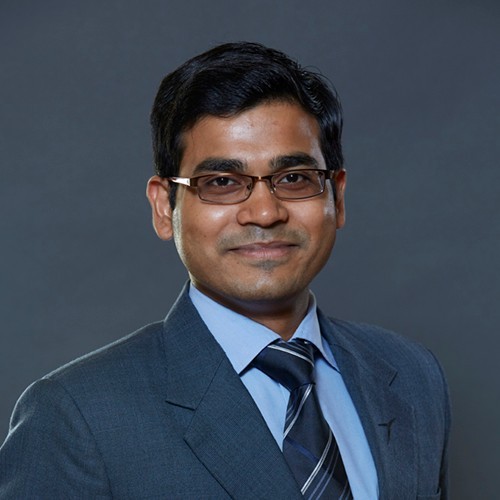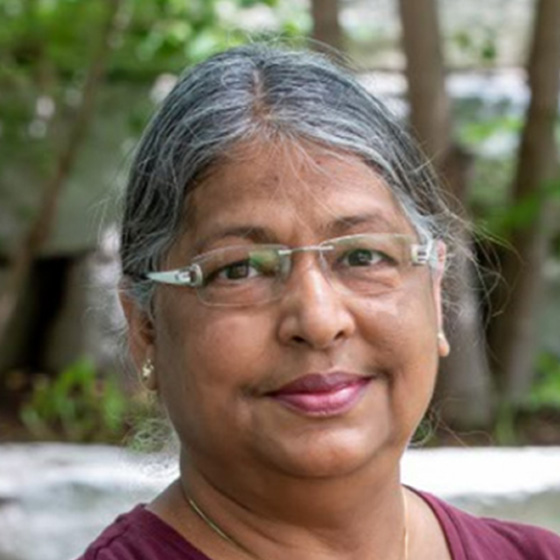Faculty & Staff
Management Team
Associate Faculty Members
Name: P. Ravi Selvaganapathy University and Department: McMaster University, Professor in the Department of Mechanical EngineeringEmail: selvaga@mcmaster.ca Ravi Selvagnapathy expertise is in the microfabrication technology and in microfluidics. We are interested in developing fabrication and integration processes for new materials in microdevices. We are also interested in developing components such as micropumps, microvalves, micromixers and microfluidic nozzles that could be used in several applications. We apply this expertise to build innovative micro and nanoscale devices for use in environmental and medical diagnostics, drug discovery, drug delivery and for manufacture of artificial organs. Lab Website
LinkedIn Profile
Google Scholar Profile
Name: Julie Audet University and Department: University of Toronto, Professor in the Institute of Biomedical Engineering Email: julie.audet@utoronto.ca Julie Audet research focuses on the development of biological search algorithms and their applications in stem cell manufacturing processes. The algorithms Julie Audet develops operate iteratively with experimental measurements and are designed to take into account biological systems in their operations. Algorithm-based optimization processes generate data which can be extracted using bioinformatics tools providing insights to cellular and molecular mechanisms. LinkedIn Profile
Google Scholar Profile
Name: Michelle Bamji-Mirza University and Department: Collège La Cité, Manager of the Technology Access Centre in Bio-Innovation Email: mbamji@lacitec.on.ca Michelle Bamji-Mirza, Ph.D. is the Manager of the Technology Access Centre in Bio-Innovation (TAC-B) at College La Cité, in Ottawa, where she leads collaborative applied research projects with private companies in health biotechnology. She is heavily involved in developing partnerships to accelerate Canadian innovation and effectively participates in grant applications to fund the Research Office at the College. LinkedIn Profile
Google Scholar Profile
Name: Michael Von Massow University and Department: University of Guelph, Professor in the Department of Food, Agricultural, and Resource EconomicsEmail: mvonmass@uoguelph.ca Mike is interested in how people think about food with recent work focusing on labeling, novel food products, animal welfare and antibiotic use. Mike's research also considers the structure and performance of food value chains as they evolve in response to changing consumer preferences and other factors. As a frequent blogger with a strong presence on broadcast, print and social media, Mike helps contribute to the Department’s on-going efforts to mobilize research in a manner that helps to inform public policy and private strategy. External Website
Lab Website
LinkedIn Profile
Name: David Wishart University and Department: University of Alberta, Professor in the Department of Biological Sciences and Computing ScienceEmail: dwishart@ualberta.ca David Wishart research interests are broad and include metabolomics, analytical chemistry, food chemistry, natural product chemistry, molecular biology, protein chemistry and neuroscience. He has developed several widely used techniques using NMR spectroscopy, mass spectrometry, liquid chromatography and gas chromatography to characterize the structures of both large and small molecules. More recently, his efforts have focused on characterizing the chemical constituents in various foods (through the FooDB database) and food-associated biomarkers. His lab has used machine learning and artificial intelligence to create >60 useful databases and software tools to help characterize and identify microbial metabolites, drugs, pesticides, and natural products. LinkedIn Profile
Lab Website
Google Scholar Profile
Name: S. Andrew Gadsden University and Department: McMaster University, Associate Professor in the Department of Mechanical Engineering Email: gadsden@mcmaster.ca Dr. Gadsden’s research background and expertise includes a broad consideration of control and estimation theory, artificial intelligence and machine learning, and smart or cognitive systems. His team is focusing on novel and efficient ways of advancing the theory of cognitive systems while improving public confidence, acceptance, and trust in their application. In particular, he is working on developing robust estimation and control strategies to improve cognitive system performance within the perception-action cycle. LinkedIn Profile
Google Scholar Profile
Lab Website
Name: Alison McGuigan University and Department: University of Toronto, Professor in the Department of Chemical Engineering & Applied Chemistry Email: alison.mcguigan@utoronto.ca Alison McGuigan is a Professor in Chemical Engineering & Applied Chemistry and the Institute for Biomedical Engineering at University of Toronto. She serves on the executive leadership team of CFREF Medicine by Design program and on the Centre for Commercialization of Regenerative Medicine (CCRM) incubation and outreach committee. The McGuigan lab uses biomaterials and engineering technologies to create artificial tissues which can be used to develop and discover new drugs, decide which drugs to give to which patients, and potentially to predict which people are likely to get sick from specific diseases. LinkedIn Profile
Google Scholar Profile
Lab Website
Name: Dawn Martin-Hill University and Department: McMaster University, Associate Professor in the Department of AnthropologyEmail: dawnm@mcmaster.ca Dawn is Mohawk and is the first Indigenous cultural anthropologist in Canada and founder of the Indigenous Studies Program at McMaster University. Her current research includes traditional ecological knowledge and western science multi-disciplinary teams led by community to find solutions in improving FN water quality through attention to technology, governance, capacity building and knowledge mobilization. Her other research Interests focuses on Aboriginal Health, Cultural Preservation, Cultural Reclamation, Aboriginal Spirituality, Decolonization, Gender, Gender & Identity, Indigenous Knowledge, Language Preservation, Social-Cultural Anthropology, and Traditional Medicine Practices. LinkedIn Profile
Google Scholar Profile
Name: Claudia Emerson University and Department: McMaster University, Professor in the Department of PhilosophyEmail: emersoc@mcmaster.ca Professor Claudia Emerson’s work considers complex ethics issues and policy gaps in global health research. She has been working with international stakeholders in the field for over fifteen years examining issues that arise along the discovery-to-delivery pathway for health technologies and interventions. She is especially interested in ethics issues related to the introduction and adoption of novel technologies, the management of infectious disease, and data ethics and governance. LinkedIn Profile
Google Scholar Profile
Lab Website
Name: Thomas Hawke University and Department: McMaster University, Professor in the Department of Pathology & Molecular MedicineEmail: emersoc@mcmaster.ca The Hawke Lab at McMaster studies skeletal muscle. We are interested in the ability of skeletal muscle to maintain metabolic function and physical capacities in response to stressors such as exercise, disease and pharmacological insults. Lab Website
Lab Website
Google Scholar Profile
Name: Fei Geng University and Department: McMaster University, Associate Professor in the W Booth School of Engineering Practice and TechnologyEmail: gengf@mcmaster.ca Dr. Geng specializes in the research areas of cancer biology, biochemistry and cell biology. Dr. Geng is currently teaching Molecular Biology, Biochemistry, Immunology and Virology, Genomics and Proteomics at W.Booth School of Engineering Practice and Technology. LinkedIn Profile
Google Scholar Profile
Name: Krishna Mahadevan University and Department: University of Toronto, Professor in the Department of Chemical Engineering & Applied ChemistryEmail: krishna.mahadevan@utoronto.ca Dr. Mahadevan is a pioneer in the fields of systems biology, synthetic biology, and constraint-based models of metabolic networks. His research interests include systems analysis, engineering and control of biological processes, and genome-scale models of cellular processes. Applications of this work include optimization of bioremediation strategies, engineering for microbial fuel cells, and the designing cells to economically produce high-value chemical products. His computational expertise is critical to the development of organism-independent metabolic models based on the metagenome sequence data generated by researchers in BioZone. LinkedIn Profile
Google Scholar Profile
Lab Website
External Website
Name: Craig Simmons University and Department: University of Toronto, Professor in the Department of Mechanical EngineeringEmail: simmonslab-admin@mie.utoronto.ca The Simmons lab investigates how biomechanical forces on cells lead to regeneration, repair, and disease of cardiovascular tissues. His dynamic team of engineers, biomedical scientists, and physicists tackle applied biomedical problems in the areas of heart valve mechanobiology and disease, stem cell-based tissue regeneration, and microfluidic physiological systems. Approaches integrate experimental and computational cell mechanics with state-of-the-art quantitative cellular and molecular biology. Lab Website
Google Scholar Profile
LinkedIn Profile
Name: Michael Rogers University and Department: University of Guelph, Associate Professor in the Department of Food ScienceEmail: mroger09@uoguelph.ca Michael’s research focuses on the development of long-term solutions for health by changing how foods are manufactured from a lipid (fat) standpoint. Most solid foods that have a high fat content contain mostly saturated and trans-fats; Michael looks to find technologies that can be used to replace these with unsaturated oils while keeping the desired physical properties of the original food product. Specifically, he hopes to find a new ingredient technology that can be added to gel the unsaturated oils. Lab Website
Google Scholar Profile
LinkedIn Profile
Twitter
ResearchGate
Name: Bradley A. Saville University and Department: University of Toronto, Professor in the Department of Chemical Engineering & Applied ChemistryEmail: bradley.saville@utoronto.ca Dr. Saville is an expert in biofuels and bioenergy benchmarking and has been involved in the biofuels area from bench scale R&D to commercialization, economics and policy. Technology derived from his research and patents related to novel hydrolytic enzymes has been field tested in seven North American fuel ethanol plants and has been used in the production of more than 500 million US gallons of ethanol since 2004. Dr. Saville has collaborated with SunOpta Bioprocess Inc., Xylitol Canada, Canenergy, BBI, Natural Resources Canada, Environment Canada and the North American Energy Working Group on various projects related to biofuels, bioenergy and bioproducts. LinkedIn Profile
Google Scholar Profile 
